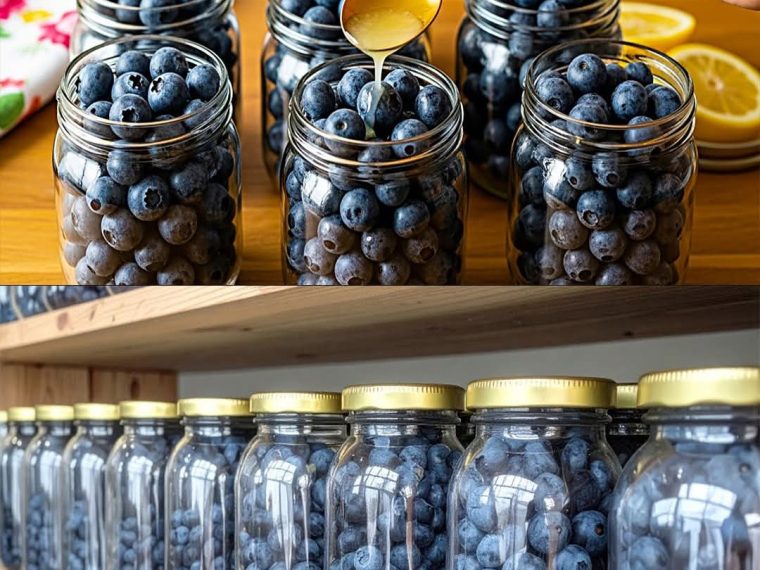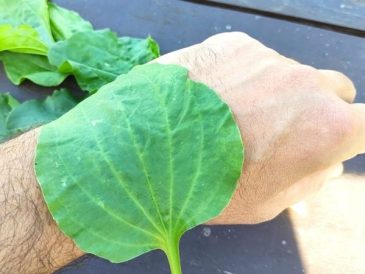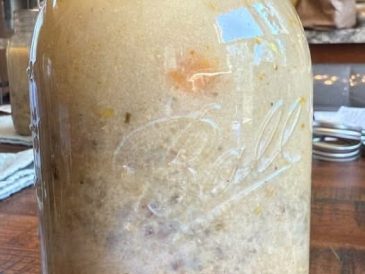Blueberries are one of the most antioxidant-rich fruits you can eat, and preserving them properly means you can enjoy their flavor and benefits long after the harvest season ends. Whether you’ve picked them yourself or stocked up from a local market, learning how to store blueberries naturally can save you money and reduce waste.
Here’s a simple, effective, and natural method to preserve fresh blueberries in jars using just water and lemon juice—no sugar, no chemicals, and no freezer required.
Why Preserve Blueberries in Jars?
Most people freeze blueberries to keep them fresh, but jar preservation offers several advantages:
- No freezer space needed
- Retains a more natural, fresh taste
- Longer shelf life (several months)
- Easy to store and transport
- No added preservatives or sugar
This method uses pasteurization, a gentle heat process that helps eliminate harmful microorganisms while maintaining the integrity of the fruit.
What You’ll Need
To get started, you only need a few basic ingredients and tools:
Ingredients:
- Fresh, ripe blueberries
- Lemon juice (freshly squeezed or bottled)
- Clean, filtered water
Tools:
- Clean glass jars (750 ml recommended)
- New jar lids
- A large, deep pot
- A clean cloth or kitchen towel
- A stove
Step-by-Step Guide to Preserve Blueberries
1. Wash the Blueberries Thoroughly
Start by rinsing your blueberries under cool running water. This removes any dirt, debris, or pesticide residues. Drain them well using a colander and gently pat them dry with a clean towel.
2. Prepare Clean Jars and Lids
Use sterilized glass jars with airtight, new lids. You can sterilize jars by boiling them for 10 minutes or running them through a hot dishwasher cycle. Make sure they are completely dry before use.
3. Fill the Jars with Blueberries
Gently place the clean blueberries into each jar, filling them up to about 2-3 cm below the rim. Do not mash or crush the berries—they should remain whole.
4. Add Lemon Juice to Each Jar
Add 1 tablespoon of lemon juice to each 750 ml jar. This step is crucial because lemon juice increases the acidity, creating an environment where harmful bacteria like Clostridium botulinum (which causes botulism) cannot thrive.
5. Fill the Jars with Water
Pour clean, filtered water into the jars, covering the blueberries entirely. Leave about 1 cm of space at the top to allow for expansion during heating.
6. Wipe the Jar Rims and Seal
Before sealing, wipe the rims of each jar with a clean cloth to ensure no fruit or juice interferes with the sealing process. Close tightly with clean, new lids.
7. Prepare for Pasteurization
Place a clean cloth or folded kitchen towel at the bottom of a large, deep pot. This prevents the jars from bumping into each other or the pan during the heating process.
Carefully place the jars upright into the pot. Then, fill the pot with water until it reaches just below the lids of the jars. It’s important not to cover the lids completely.
8. Pasteurize the Jars
Bring the water to a gentle boil. Once boiling, reduce the heat slightly and pasteurize the jars for 30 minutes. This heat will kill any lingering bacteria while keeping the fruit intact.
9. Let the Jars Cool Down in Water
After 30 minutes, turn off the heat and let the jars cool completely in the water. This gradual cooling process helps create a strong vacuum seal and prevents the jars from cracking.
10. Store in a Cool, Dark Place
Once completely cooled, remove the jars, dry them, and store them in a dark pantry or cupboard. Properly sealed jars can last several months, making them perfect for enjoying blueberries out of season.
Tips for Best Results
- Use only fresh, unbruised blueberries for the best texture and taste after preservation.
- Label each jar with the date you preserved them.
- Store in a place that is cool, dry, and away from sunlight to maintain quality.
- After opening a jar, refrigerate it and consume the contents within a week.
Ways to Use Preserved Blueberries
Preserved blueberries are incredibly versatile! You can:
- Add them to yogurt, oatmeal, or smoothies
- Use as a topping for pancakes or waffles
- Mix into baking recipes like muffins or cakes
- Serve over ice cream or custards
- Eat straight from the jar as a healthy snack
They retain much of their original texture and color, making them ideal for both sweet and savory uses.
Conclusion
Preserving blueberries in jars with lemon juice and water is a time-tested method that requires no fancy equipment or artificial preservatives. It’s a fantastic way to enjoy the taste and nutrition of blueberries all year round, reduce waste, and prepare natural food right at home.
⚠️ Disclaimer:
Always follow proper canning and preservation practices. If you notice bubbling, off smells, discoloration, or an unsealed lid after storage, do not consume the contents of the jar.
Inspired by this? Share the article with your friends!





